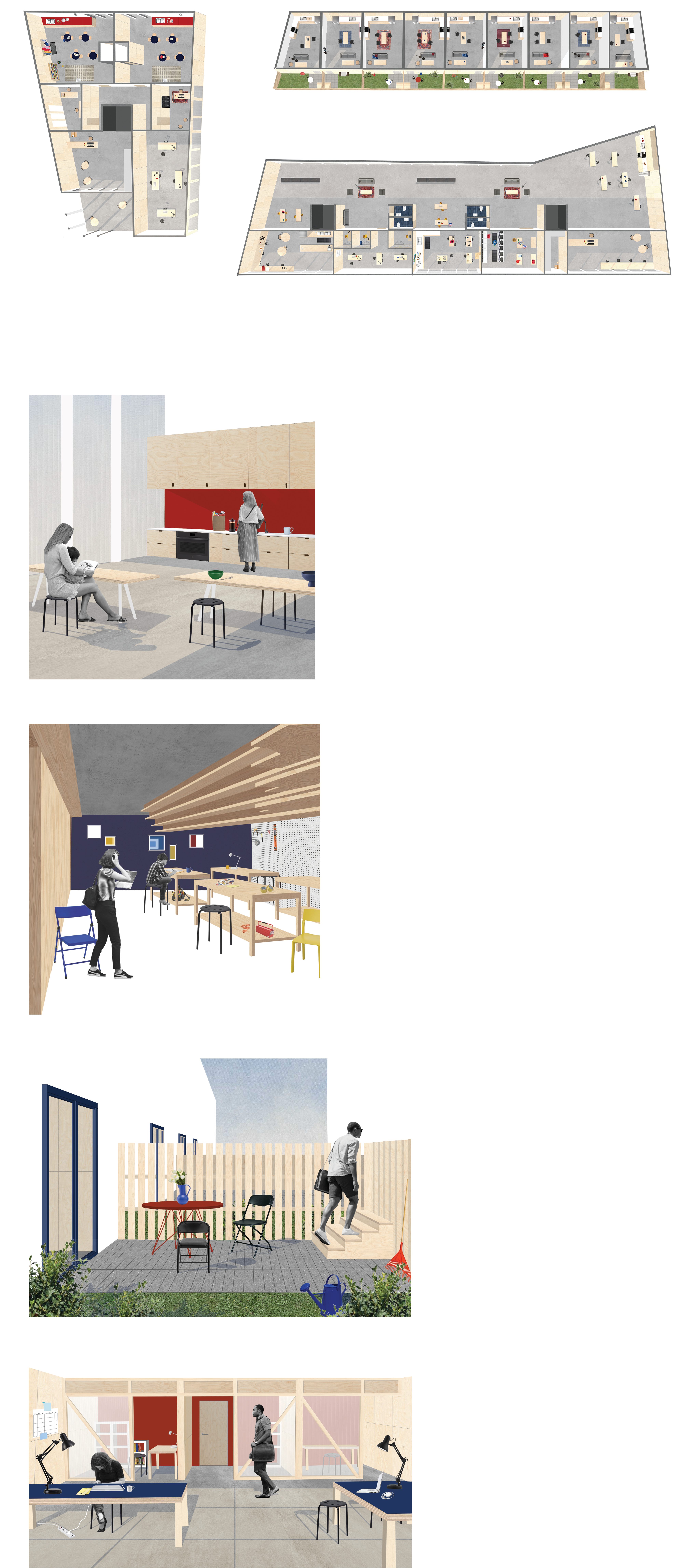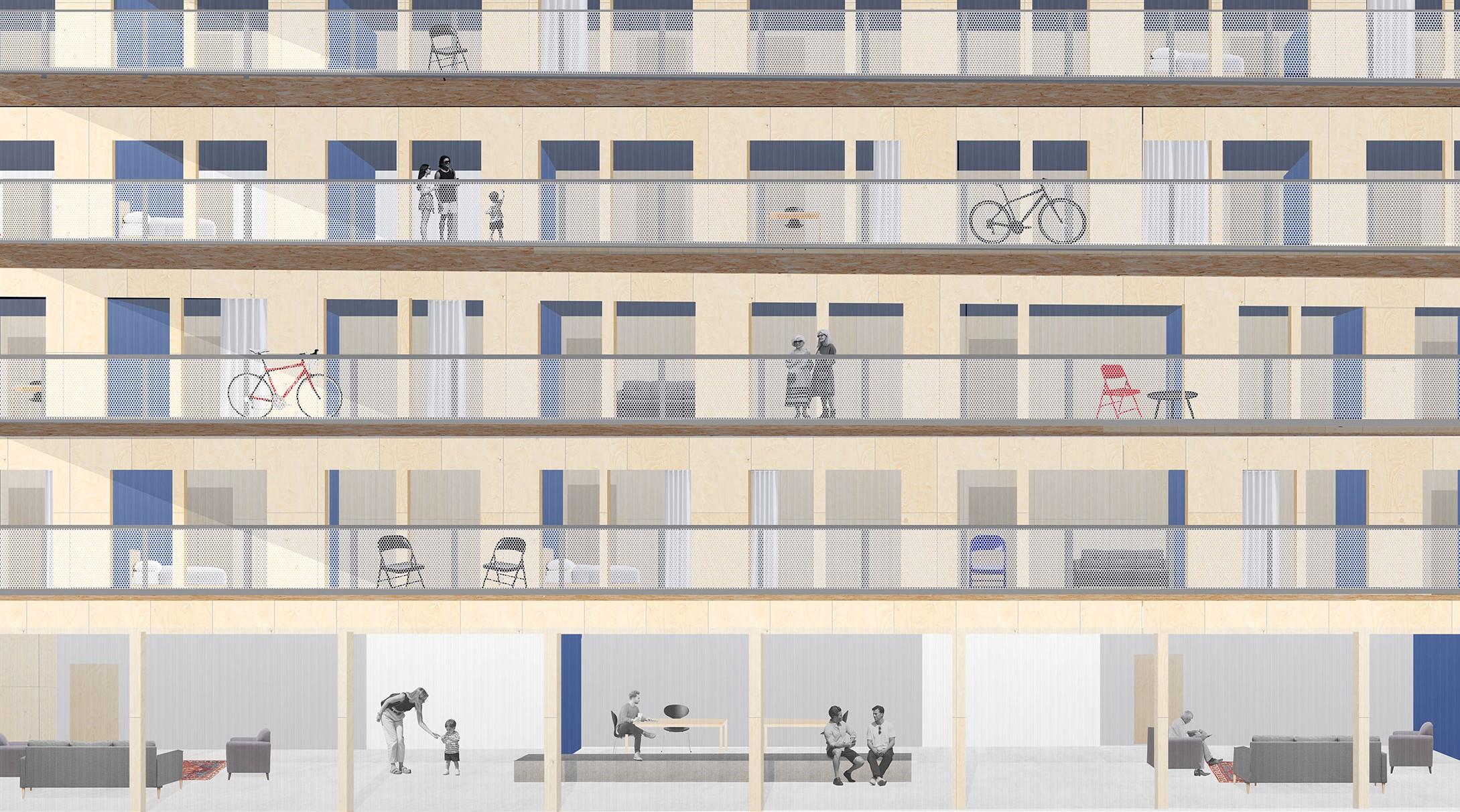My thesis investigates territoriality within mixed-income housing developments. I define territoriality as the intersection between geography and politics, with the distinct imposition of power. My work explores the many ways humans draw barriers – physical or invisible – around space, more specifically drawing barriers around spaces where they find or construct their identities. My thesis develops a critique on Toronto’s inclusionary zoning policies, investigating the mixed realities of mixed income communities. Such developments can be seen to alleviate the harms of concentrated poverty and achieve urban revitalization; it is hoped that they will grant low-income families and individuals access to networks and resources – such as higher-quality education, job opportunities, and proximity to amenities – as well as confer a greater sense of safety for residents. Yet mixed income communities also face the threat of displacement from growing land costs and gentrification; they can produce social polarization between individuals of different economic backgrounds, fostering a lack of community and ineffective social spaces; they typically do not provide space to ‘grow into’ to respond to changing housing needs. I propose a mixed-income development in Toronto using community space as a means to overcome both physical and invisible barriers between residents.



